
VOCABULARY – BEDTIME
Here is some vocabulary about sleep and bedtime.
- Bed Mattress
- Pillow
- Bunk beds
- Crib
- Alarm clock
- Pajamas
- Slippers
- Sleeping
- Snoring
- Dreaming
- Wetting the bed
Do you know any other words related to sleep?

Mar 06

Here is some vocabulary about sleep and bedtime.
Do you know any other words related to sleep?
Permanent link to this article: https://englishyourway.com.br/vocabulary-bedtime/
Mar 05

GRAMMAR – PHRASAL VERBS & HEALTH
Permanent link to this article: https://englishyourway.com.br/grammar-phrasal-verbs-health/
Mar 05
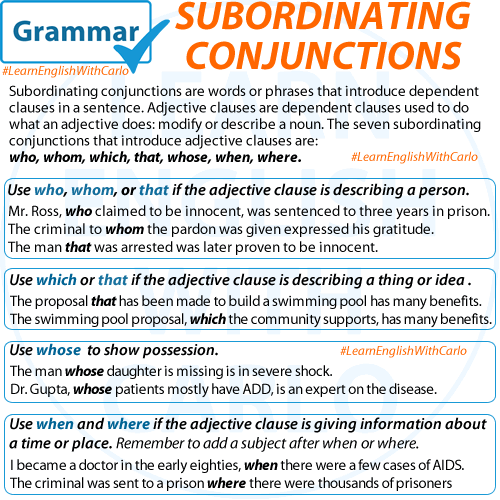
GRAMMAR – Subordinating Conjunctions
Subordinating conjunctions are words or phrases that introduce dependent clauses in a sentence. Adjective clauses are dependent clauses used to do what an adjective does: modify or describe a noun. The seven subordinating conjunctions that introduce adjective clauses are: who, whom, which, that, whose, when, where.
Remember to add a subject after when or where.
Permanent link to this article: https://englishyourway.com.br/grammar-conjunctions-2/
Mar 05
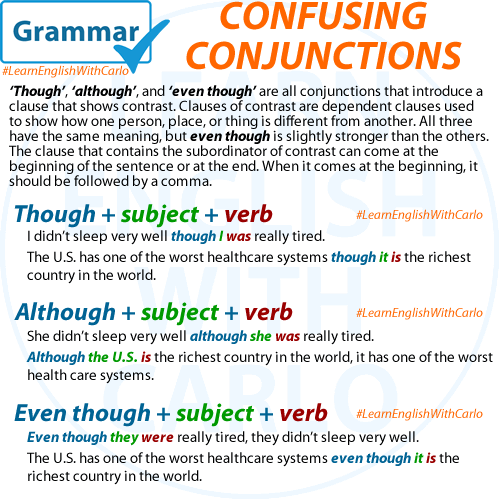
GRAMMAR – Conjunctions
‘Though’, ‘although’, and ‘even though’ are all conjunctions that introduce a clause that shows contrast. Clauses of contrast are dependent clauses used to show how one person, place, or thing is different from another. All three have the same meaning, but even though is slightly stronger than the others.
The clause that contains the subordinator of contrast can come at the beginning of the sentence or at the end. When it comes at the beginning, it should be followed by a comma.
Permanent link to this article: https://englishyourway.com.br/grammar-conjunctions/
Mar 10
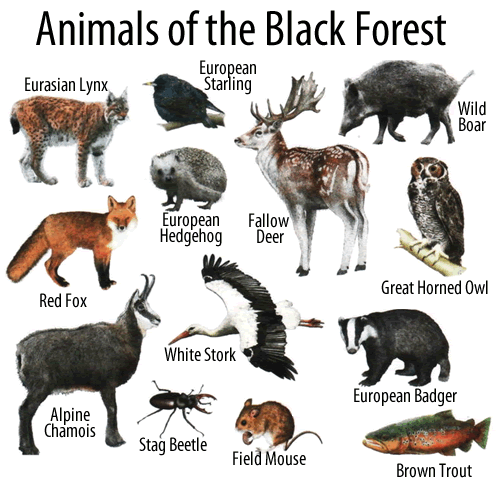
I had a special request for Forest Animals on my Instagram account so I found this image of a postcard online and thought it would be interesting to share.
These are animals of the Black Forest.
If you have any questions or doubts, please ask in the comments or send me a private message.
Follow me on Instagram: @englishyourwaybr
or look for the hashtag #LearnEnglishWithCarlo
Permanent link to this article: https://englishyourway.com.br/vocabulary-forest-animals/
Mar 10
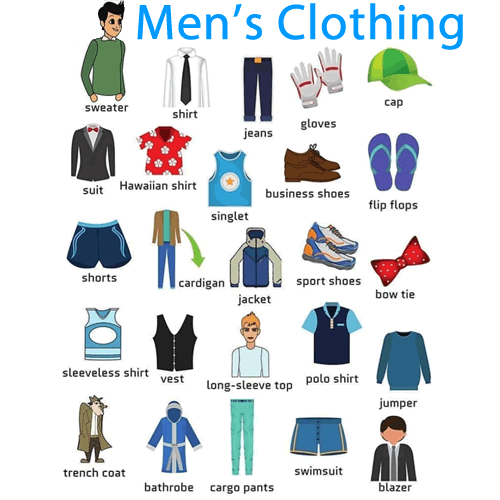
Here is a slide of some common men’s clothing:
If you have any questions or doubts, please ask in the comments or send me a private message.
Follow me on Instagram: @englishyourwaybr
or look for the hashtag #LearnEnglishWithCarlo
Permanent link to this article: https://englishyourway.com.br/vacabulary-mens-clothing/
Mar 10
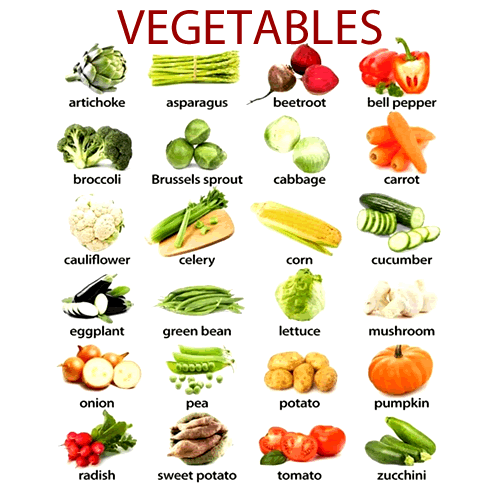
Here is some vocabulary for common vegetables. In this image you can see the following vegetables:
Do you like vegetables? Are you vegetarian? Are you vegan? Tell me what your favorite vegetables are.
If you have any questions or doubts, please ask in the comments or send me a private message.
Follow me on Instagram: @englishyourwaybr
or look for the hashtag #LearnEnglishWithCarlo
Permanent link to this article: https://englishyourway.com.br/vocabulary-more-vegetables/
Mar 08

The verb “to bear” has a few different meanings in English.
Here I want to focus on one particular meaning: “to give birth.”
ACTIVE: She bore (gave birth to) a healthy baby boy.
In this sentence ‘she’ is the subject and ‘a heaelthy baby boy’ is the object.
PASSIVE: A healthy baby boy was born (to her).
Now the ‘healthy baby boy’ is the subject and we’ve made the sentence passive by adding the verb ‘to be’ + the past participle of bear (born).
Usually when we talk about ourselves and our birth, we use the passive voice.
“I was born in Dublin” is so much more common that “My mother bore me in Dublin.”
Permanent link to this article: https://englishyourway.com.br/grammar-active-or-passive-to-bear/
Mar 06

When we ask WHAT DO YOU DO?, we want to know what you do for a living. So,…
We need to pay attention to the article (a, an, no article):
We use ‘a’ when the profession is singular and begins with a consonant sound.
We use ‘an‘ when the profession is singular and begins with a vowel sound.
We use no article when the profession is plural.
If you have any questions or doubts, please ask in the comments or send me a private message.
Follow me on Instagram: @englishyourwaybr
or look for the hashtag #LearnEnglishWithCarlo
Permanent link to this article: https://englishyourway.com.br/grammar-your-profession/
Mar 05

When people use the term “bodily functions” they are usually talking about peeing and poooping.
But there are other bodily functions as well. Here are a few of them.
Tussis is the Latin word for “cough.” It’s the origin of both tussication, a formal word for coughing, and pertussis, the medical name for whooping cough.
As well as being another word for a volcanic eruption, eructation is the medical name for burping, while the burp itself is called a ructus.
A sneeze or a sneezing fit is properly called a sternutation. Anything described as sternutatory causes sneezing.
Technically, flatus is just the build-up of gas in the stomach or bowels, not the actual expulsion of it. For that, why not try using an old English word for a fart—ventosity.
If you have any questions or doubts, please ask in the comments or send me a private message.
Follow me on Instagram: @englishyourwaybr
or look for the hashtag #LearnEnglishWithCarlo
Permanent link to this article: https://englishyourway.com.br/vocabulary-bodily-functions/